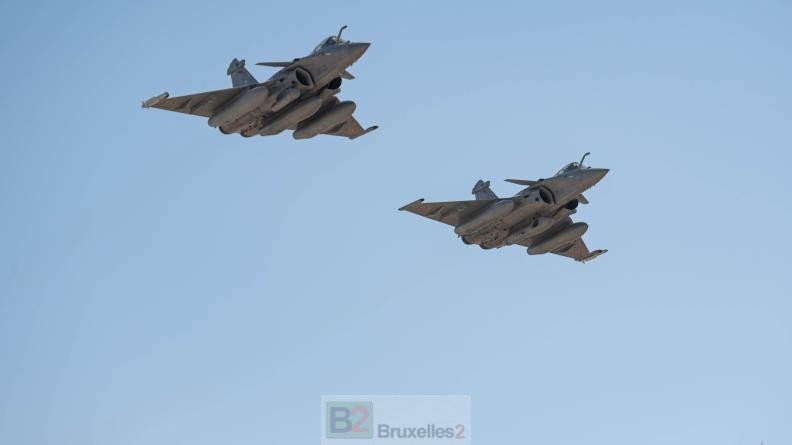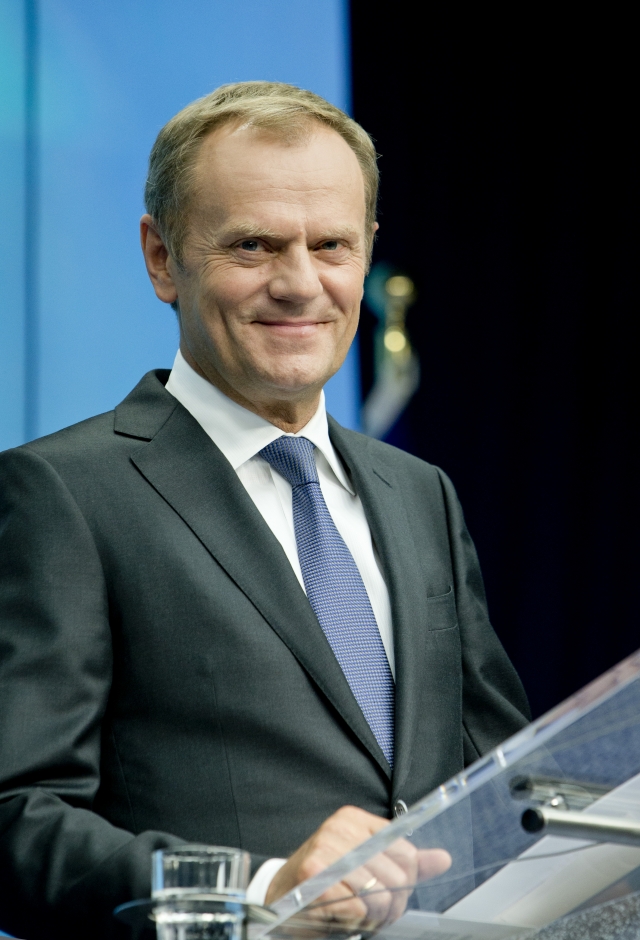[Editorial] Defense Europe: do not let your guard down
(B2) Make no mistake. Faced with increasing threats, the impetus given for European defense at the last European summit remains modest, the momentum started in spring 2022 is fading, and ambition remains limited.
Progress was included in the conclusions adopted on Thursday (21 March) evening. A change of gear surely as we have observed (Read: [Decryption] Industry and defense capabilities. The Twenty-seven change gear). But not this paradigm shift » so praised by some (Charles Michel) or this “ copernican revolution » so desired by others (Emmanuel Macron).
Interesting advances
European leaders endorsed on Thursday (March 21) a series of advances in terms of European defense: the call to the European Investment Bank to relax its lending policy, the desire to move forward on reuse of exceptional income from frozen Russian public assets, a mandate given to the Commission to study all options to find other sources of financing for defense, and the blessing given to the new strategy for the defense industry proposed by Thierry Breton, etc. Progress to which must be added the increase in the budget of the European Peace Facility of €XNUMX billion, already underway.
Projects that date
All these reform projects have, in fact, been on the table for about two years, since the Versailles summit which was held in March 2022, just after the launch of the Russian military intervention in Ukraine. They are the outcome for some, a stage for others. And to have new ideas, particularly on financing, we will have to wait until next June for a first report, a few more months to clarify these ideas and have concrete proposals, and probably another year or two before their implementation. If all goes well ! Because the year 2024 is already “ jelly », the Europeans being in the electoral campaign and the European institutions in full renewal.
A half-Copernican revolution
Affirm " the principle that Europeans need to produce more and build a defense industry that allows them to supply themselves (themselves)”, is certainly “ a little Copernican revolution » if we take the words of Emmanuel Macron, at the end of the summit on March 22. Because until now the consensus “ implicit was that Europeans (...) always bought from outside ". But this forgets the geopolitical reality.
A missed sense of urgency
With a possible new Russian offensive by this summer, the still latent blockage of the American aid package for Ukraine, or even the return of Trump to power in the USA, the result may thus appear quite weak and lacking in ambition. The famous " sense of urgency » touted by some European leaders is hardly present. The impression is rather of reliving the second part of 2021 or early 2022, when everyone was waiting, telling themselves that the worst is not going to happen. Europeans are thus returning to their guilty pleasure: procrastinating, postponing delicate decisions, lack of audacity.
Dealing with shortcomings and possible American failure
However, the challenges are intense. The Europeans must first of all work harder to compensate for their industrial shortcomings, to make up for their "start-up delay" in the production of ammunition which has led to a deficit of around 500.000 shells on the promise of supplying one million to Ukraine. They must also prepare to assume the failure - or worse, the total blockage - of their American ally. Waiting another two years for the ideas outlined at this summit to be implemented seems out of time.
Staying on course and internal unity
The sense of unity that has served us well so far could falter. Viktor Orban, the Hungarian Prime Minister, regularly diverges from the general interest. His Slovak neighbor follows him half-heartedly. The strong consensus on support for Ukraine in 2022 is no longer quite present among the 27. The rise of a national right (RN in France, FPÖ in Austria, AFD and others in Germany) is less harsh on Russia, even conciliatory, does not augur such an easy discussion in the future. Finally, it is not certain that the future European leadership quintet will be as determined and harmonious, at least on defense, as the current one (1).
Keep the rhythm and the audacity
The risks are multiple. Russian aggressiveness is not the only challenge facing Europeans. The return of maritime threats or localized conflicts in Africa or the Middle East is very present. Not to mention a possible return of terrorism. Lowering your guard and weakening your pace is therefore very risky. Speed of decision must be essential. Even if it means innovating and breaking away from the usual constraints. Europeans must rediscover the dynamism, audacity and ambition that characterized them in spring 2022.
(Nicolas Gros-Verheyde)
A special defense task force
No system was put in place to compensate for the institutional void during the electoral period (a European Parliament on vacation for three months). No solution has been proposed either to resolve the fragmentation of power which exists between the different institutions on defense issues: European Commission, High Representative, Parliament (for the legislative part), Council of Ministers, European Council, etc. .
Without changing one iota of the treaties, a special task force could easily be set up under the joint authority of the three main parties concerned (European Council, European Commission, High Representative), with the help of state military experts. EU major and capabilities experts from the European Defense Agency. Like what happened at the start of the crisis.
- There is between the German Ursula von der Leyen at the head of the European Commission, the Spaniard Josep Borrell head of European diplomacy and defense, the French Thierry Breton in charge of the internal market and the defense industry, the Belgian Charles Michel on the side of the European Council and Maltese Roberta Metsola, a sort of fairly coherent quintet, converge to advance, propose, decide on the defense part and support for Ukraine. Quite exceptional to report. Because on the rest, everything divides them, characters, political affiliations even egos which rub against each other from time to time in public.

